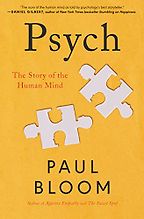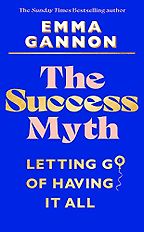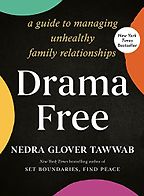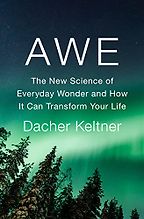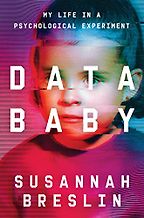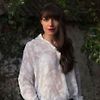What psychology and self-help books were on your radar in 2023?
Self-help and psychology is a crowded market, and—I find—a particularly difficult genre to recommend to others, as our tastes, needs, and goals are so individual. Some of us are looking for bootcamp-type heckling to harry us into action. Others like a gentler, more understanding approach to ease the pain. Others still do not seek motivational texts of any kind, but more objective theses bolstered by recent psychological research that help us to understand our minds and society as a whole.
So let me start with a round-up of books by past Five Books interviewees—that is, individuals we have previously highlighted as experts in their fields. Paul Bloom published a new book, Psych: The Story of the Human Mind, which serves as an accessible and highly readable overview of the field of psychology. It draws from his immensely popular introductory psychology class at Yale, reportedly one of the university’s most popular courses of all time. In it, he leads the reader through the work of early researchers (including Pavlov’s dogs and Skinner’s pigeons), into a discussion of the malleability of memory and emotion, and the complex questions surrounding consciousness. The New Scientist said it was “an ambitious, up-to-the-minute, comprehensive” introduction; it would be perfect for the curious layman or a switched-on school leaver considering a degree in psychology.
The Duke University psychologist Dan Ariely—who we once interviewed about the best books on behavioural economics—published Misbelief: What Makes Rational People Believe Irrational Things. It digs into our bizarre attraction towards misinformation and ‘alternative facts.’ In the context of the fake news crisis, social media bubbles, and the rise of unnervingly convincing narratives produced by artificial intelligences, this book couldn’t be more timely.
And the New York Times columnist David Brooks (The Social Animal, The Second Mountain) offered up a new book about social psychology through the lens of self-improvement, How to Know a Person: The Art of Seeing Others Deeply and Being Deeply Seen.
What about new titles related to careers and productivity?
In 2023, self-help books were explicitly moving away from themes of self-optimisation, productivity, and ‘grind culture’, and towards building a more boundaried, balanced relationship with work. Oliver Burkeman’s Four Thousand Weeks: Time Management for Mortals, which Emma Gannon highlighted as one of the best self-help books of 2021, was an early leader in this field, and remains extremely readable and convincing. It’s available now in paperback in both the UK and the US. Gannon, another bestselling British author, has herself recently published a helpful, perspective-offering book along parallel lines: The Success Myth: Letting Go of Having it All reflects on why our traditional vision of what ‘success’ looks like so often leaves us with a sense of anti-climax, and how to step off that neverending treadmill of ambition and aspiration in favour of a more fulfilling life. It was endorsed by the likes of Seth Godin and Alain de Botton, and serves as a valuable and earnestly-argued polemic that will force you to question what you are really trying to achieve.
Simone Stolzoff’s The Good Enough Job: Reclaiming Life From Work tackles some similar ideas, and is aimed at a similar audience—those who feel they have submerged themselves in pursuit of an ideal career and lost something of their own character, objectives, and identity along the way. (The title is a riff on Derek Winnicott’s idea of ‘good enough parenting,’ which allowed for the child’s natural and growing disillusionment with the parental figure as part of normal development. If this sounds comforting, you may also be interested in Avram Alpert’s The Good Enough Life.)
Hidden Potential: The Science of Achieving Greater Things by Adam Grant—Wharton psychologist and author of the mega-bestseller author of Think Again—comes at the question of success and aspiration from a more traditional angle, arguing that talent is overrated; it’s all about character and application. A classic self-help book for those seeking focused and inspirational life advice, with a particular concentration on organisational change and creating supportive systems.
While I’m here, I should also mention that Oprah Winfrey teamed up with Harvard Business School professor Arthur C. Brooks to write Build the Life You Want: The Art and Science of Getting Happier, an uplifting book with a focus on emotional self-regulation that was an instant New York Times bestseller. Work is one of their ‘four pillars’; the other key elements as they see it are family, friendship, and faith.
Yes, managing our personal relationships is so important. Any useful new books offering advice in this area?
You might be interested in two new books from relationship therapist Nedra Glover Tawwab, author of the bestselling Set Boundaries, Find Peace. In February, she published Drama Free: A Guide to Managing Unhealthy Family Relationships, pitched as “a road map for understanding and moving past family struggles—and living your life, your way.” If you grew up with a fractured, violent, or otherwise traumatic family life, and feel that those experiences have followed you into later life—or if you find yourself trapped in a toxic cycle in your dealings with your close relations—this is a book that will push you to find a calmer, more humane dynamic. If you find it illuminating, a spin-off ‘workbook’, offering related practical exercises, is also now available for pre-order.
What other trends have you noticed among the 2023 crop of psychology and self-help books?
There has been a rash of books about awe and wonder—essentially celebrating the profound impact of these emotions upon the human brain. UC Berkeley professor Dacher Keltner’s Awe: The New Science of Everyday Wonder and How It Can Transform Your Life offers a very readable, scientifically sound exploration of a near-ineffable experience, which he defines as “the feeling of being in the presence of something vast that transcends your current understanding of the world.” (As an aside, I spoke to the philosopher Robert Clewis about ‘the sublime’ early last year, and he noted that he had been collaborating with experimental psychologists researching awe; the sublime, he said, could be interpreted as a form of ‘aesthetic awe.’)
And, on a similar topic but taking a very different—more personal—approach, Katherine May’s Enchantment: Awakening Wonder in an Anxious Age shares stories from her own life, in which she has sought to escape feelings of stress, disconnection, and overwhelm by re-awakening her awareness of the subtle beauty that can be found everyday life. She swims in the sea, keeps bees, and watches a meteor shower… Altogether these gentle personal essays make for a feelgood book that might be dipped in and out of, and it should appeal to those who enjoyed her debut Wintering: The Power of Rest and Retreat in a Difficult World, which amassed a huge fanbase during the Covid lockdowns.
Any other 2023 psychology and self-help books that caught your eye?
A couple. Kevin Kelly, ‘senior maverick’ at Wired magazine and veteran tech writer, has a new book out: Excellent Advice for Living: Wisdom I Wish I’d Known Earlier is a compendium of short, aphorism-like words of advice aimed primarily at a younger audience. Much of it feels familiar territory but nevertheless bears repeating. (“Habit is far more dependable than inspiration,” he observes, channeling Atomic Habits. “Don’t focus on getting into shape. Focus on becoming the kind of person who never misses a workout.”)
And Susannah Breslin’s intriguing Data Baby: My Life in a Psychological Experiment jumped out at me. It’s a memoir based on her experiences as a subject of the renowned Block Study, a longitudinal research project that followed her (and 127 others) from childhood into adulthood, searching for factors that might predict a child’s future success. Breslin, the daughter of Berkeley academics, was constantly observed and interviewed throughout her early years and came to view these researchers as stand-in parental figures. She became a successful journalist but also battled cancer and found herself trapped in an abusive marriage. In Data Baby, Breslin reflects on her experiences: How much of her present was predicted by her past? How much of her future has been pre-ordained? How much has all of ours? Unfortunately much of the early data collected during the study has been destroyed, but her story serves as a curious thought experiment that poses interesting questions.
What psychology and self-help books did you enjoy in 2023? Let us know.
Five Books aims to keep its book recommendations and interviews up to date. If you are the interviewee and would like to update your choice of books (or even just what you say about them) please email us at [email protected]
Five Books interviews are expensive to produce. If you've enjoyed this interview, please support us by donating a small amount.
